第31章
There was an almost startling change in Philippa's face. The banter which had served her with so much effect, which she had relied upon as her defensive weapon, was suddenly useless. Lessingham had created an atmosphere around him, an atmosphere of sincerity.
"Are you in earnest?" she faltered.
"God knows I am!" he insisted.
"You - you care for me?"
"So much," he answered passionately, "that for your sake I would sacrifice my honour, my country, my life."
"But I've only known you for such a short time," Philippa protested, "and you're an enemy."
"I discard my birth. I renounce my adopted country," he declared fiercely. "You have swept my life clear of every scrap of ambition and patriotism. You have filled it with one thing only - a great, consuming love."
"Have you forgotten my husband?"
"Do you think that if he had been a different sort of man I should have dared to speak? Ask yourself how you can continue to live with him? You can call him which you will. Both are equally disgraceful. Your heart knows the truth. He is either a coward or a philanderer."
Philippa's cheeks were suddenly white. Her eyes flashed. His words had stung her to the quick.
"A coward?" she repeated furiously. "You dare to call Henry that?"
Lessingham rose abruptly to his feet. He moved restlessly about the room. His fists were clenched, his tone thick with passion.
"I do!" he pronounced. "Philippa, look at this matter without prejudice. Do you believe that there is a single man of any country, of your husband's age and rank, who would be content to trawl the seas for fish whilst his country's blood is being drained dry? Who would weigh a codling," he added, pointing scornfully to the scales, "whilst the funeral march of heroes is beating throughout the world?
The thing is insensate, impossible!"
Philippa's head drooped. Her hands were nervously intertwined.
"Don't!" she pleaded, "I have suffered so much."
"Forgive me," he begged, with a sudden change of voice. "If I am mistaken in your husband - and there is always the chance - I am sorry. I will confess that I myself had a different opinion of him, but I can only judge from what I have seen and from that there is no one in the world who would not agree with me that your husband is unworthy of you."
"Oh, please stop!" Philippa cried. "Stop at once!"
Lessingham came back to his place by her side. His voice was still shaking, but it had grown very soft.
"Philippa, forgive me," he repeated. "If you only knew how it hurts to see you like this! Yet I must speak. There is just once in every man's lifetime when he must tell the truth. That time has come with me - I love you."
"So does my husband," she murmured.
"I will only remind you, then, that he shows it in strange fashion,"
Lessingham continued. "He sets your wishes at defiance. He who should be an example in a small place like this, is only an object of contempt in the neighbourhood. Even I, who have only lived here for so short a time, have caught the burden of what people say."
Philippa wiped her eyes.
"Please, do you mind," she begged, "not saying anything more about Henry. You are only reminding me of things which I try all the time to forget."
"Believe me," Lessingham answered wistfully, "I am only too content to ignore him, to forget that he exists, to remember only that you are the woman who has changed my life."
Philippa looked at him in something like dismay, rather like a child who has started an engine which she has no idea how to stop.
"But you must not - you must not talk to me like this!"
His hand closed upon hers. It lay in his grasp, unyielding, cold, yet passive.
"Why not?" he whispered. "I have the one unalterable right, and I am willing to pay the great price."
"Right?" she faltered.
"The right of loving you - the right of loving you better than any woman in the world."
There was a queer silence, only partly due, as she was instantly aware, to the emotion of the moment. A door behind them had opened.
Philippa's quicker senses had recognised her husband's footsteps.
Lessingham rose deliberately to his feet. In his heart he welcomed the interruption. This might, perhaps, be the decisive moment. Sir Henry was strolling towards them. His manner and his tone, however, were alike good-natured.
"I was to order you into the billiard room, Mr. Lessingham," he announced. "Sinclair has been sent for - a night route march, or some such horror - and they want you to make a four."
Lessingham hesitated. He had a passionate inclination to face the situation, to tell this man the truth. Sir Henry's courteous indifference, however, was like a harrier. He recognised the inevitable.
"I am afraid I am rather out of practice," he said, "but I shall be delighted to do my best."